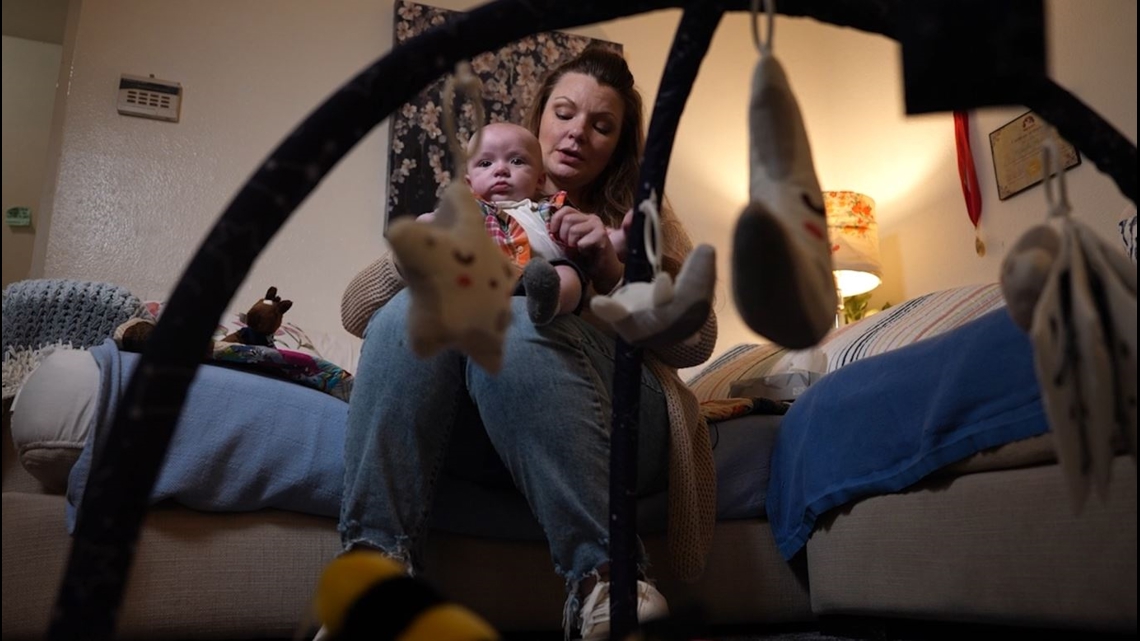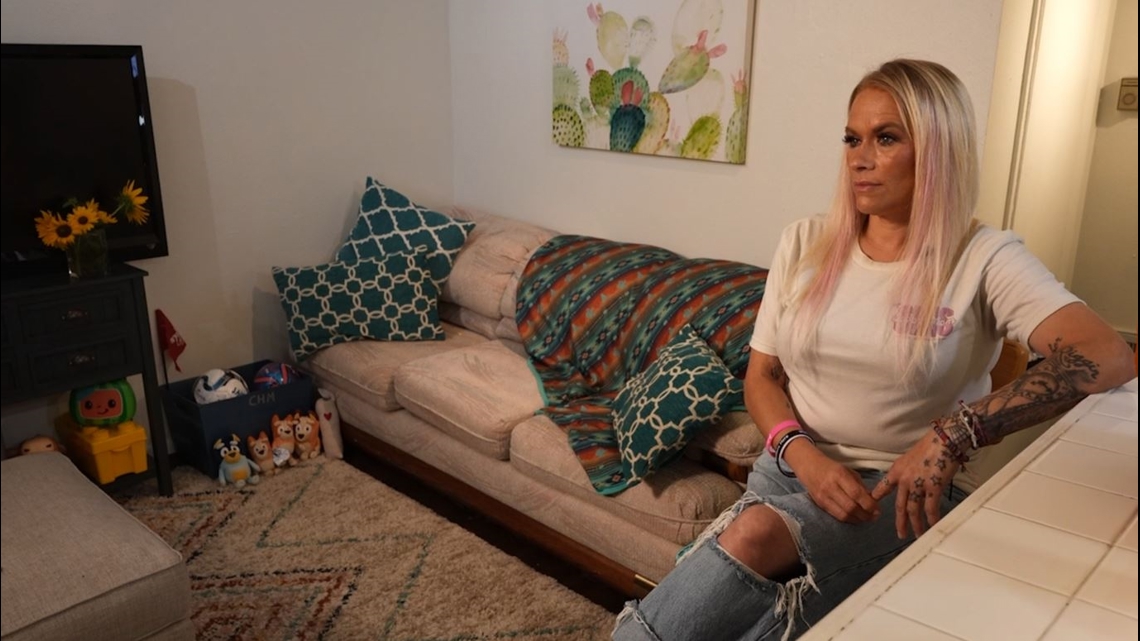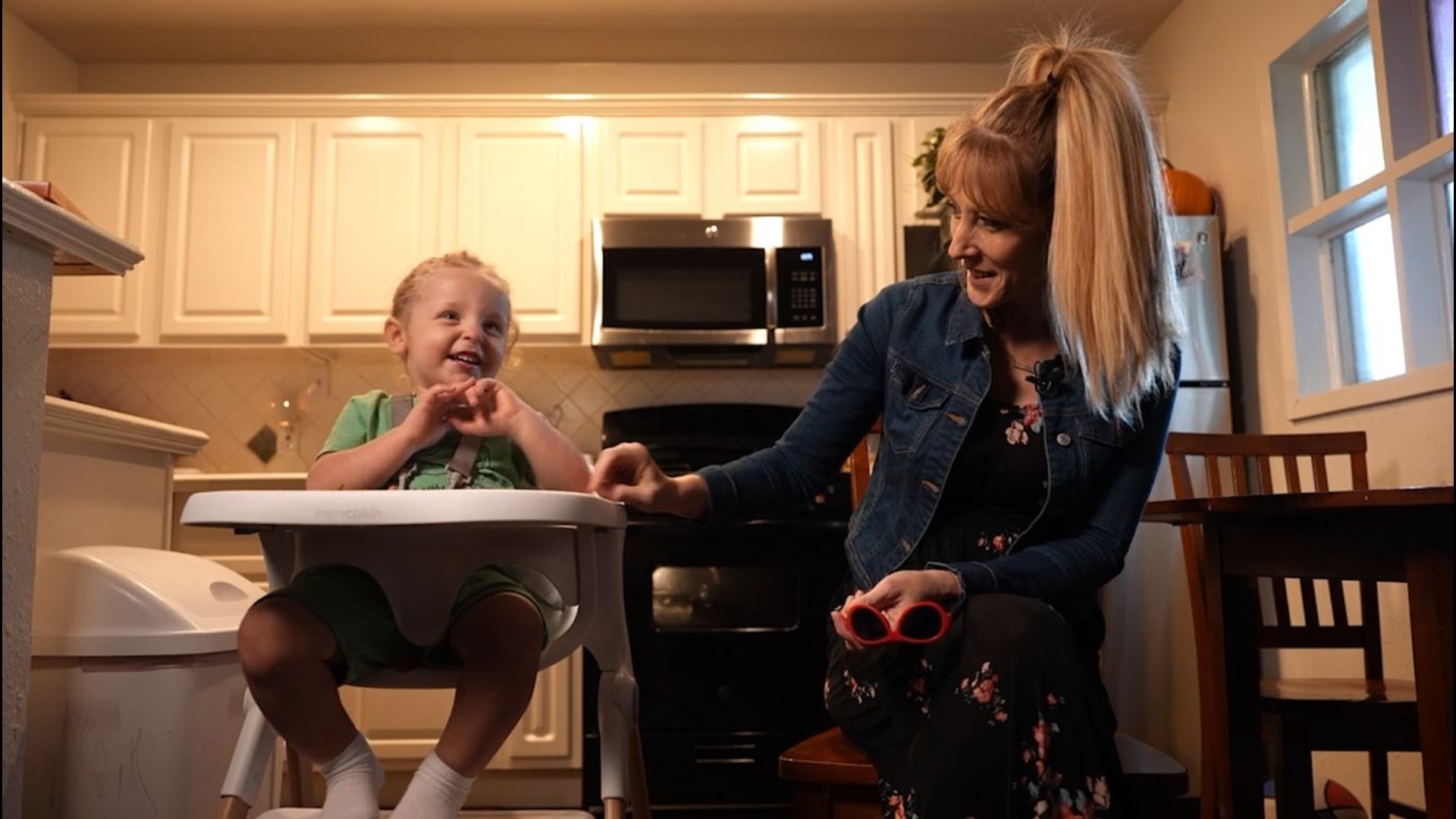DALLAS — On any given day, you can find four moms pushing strollers through historic Munger Place in Dallas. But theirs is not a normal stroll; it's a journey in search of some badly needed mercy.
"I've been in prison three times. I'm on parole right now," said Priscilla Pardun from her ground-floor apartment on Junius in Munger Place.
"At my rock bottom it was crack cocaine and heroin at the same time," said Emily Farmer in a second-floor apartment in the same building.
"I went to prison when I was like 21 years old," said Cacee Corbell in another apartment just a few doors down. "I didn't own my life or my days. I woke up and addiction owned my day."
Evidence of those lost days can be found in jail records and mugshots from the Texas Department of Criminal Justice. Each of the women served multiple years behind bars, but now out of prison and in various stages of drug treatment, they are getting a fresh start thanks to Douglas Dunn.
"What they have when they come here is a collection of burned bridges," Dunn said. "It was not a hard decision for me. I knew that that was what I needed to do."
He felt he needed to offer a place he would call Mercy's Shore. After the women, four in the initial program graduated from treatment programs at Nexus Recovery, Dunn rented space in a single apartment building where each woman could have their own place, free of charge for 18 months, while they piece their lives back together: lives they are not surviving alone.
For Priscilla, it's her 5-month-old son named Cyprus.
"I was homeless, I relapsed, was pregnant. Yeah, I was broke. I didn't know what to do," she said.


Emily's son, Ivan, just turned one. Cacee has two young boys. The oldest is named Riggin. His name, a clockface and an hourglass are tattooed on her arm.
"How much time I've lost with my children, honestly, through my addiction," Cacee said of the tattoo's meaning.
"If you could say a man has 10 problems to deal with, a woman has 100," Dunn said of men when they get out of prison or drug treatment. "It's a geometric increase in the number of issues they have to deal with."
So Mercy's Shore, a nonprofit operated primarily by Dunn and his wife, offers women a place to learn to be moms again. They offer parenting, financial literacy and Bible classes. The program is designed to offer women a chance to get job training and a paying job that can support their families so that, like Cacee, Emily and Priscilla, they are not back on the street or living in a car again, trying to figure out sobriety on their own.


"We wanted to develop a community of women who would live and work with one another in a favorable way," said Dunn. "They are friends to one another. They help one another. This is a joint exercise that needs to be accompanied. Someone who knows what you're going through and can talk to you, sometimes even talk you off the ledge."
"It is absolutely amazing. Like, it is the biggest gift," Emily Farmer said. "They don't want nothing in return. They just want to help us."
"I'm not craving the drugs or anything. So, it's a whole other life," said Priscilla Pardun. "I've never been so strong in my life now with him," she said of her son.
For Douglas Dunn, this is also personal. Drug addiction hasn't spared his family either.
"We have a granddaughter who passed away at 23 as a result of a drug overdose," he said. "It's a trauma. A trauma for the whole family. It made it real."
A way out is now a reality for women like Cacee.
"I didn't know places like this existed," she said. "And it's going to be life-changing for me and my boys."
On the day I met Cacee, it was her 41st birthday. She was celebrating another number too.
"I've been sober like 83 days at this point," she said. "It's good. Life is good. It's honestly saving our lives. I can't imagine where I would be without this place."
A place Douglas Dunn knows so many other women need.
"Because the need is always there," he said of the drug problem in the United States. "There's no end to it, and you can't build enough space."
But for now, in a program Dunn hopes to expand, a few spaces in an old building offer a second chance, and a completely new lease on life.

